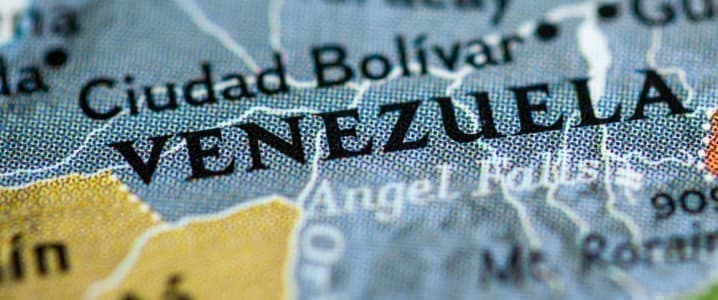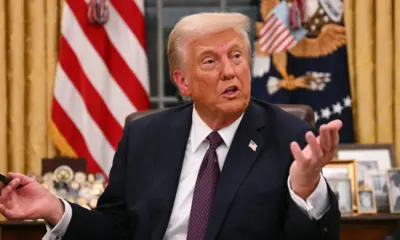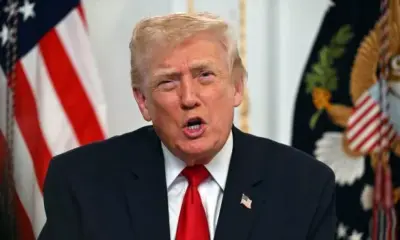Business
Venezuela Intensifies Territorial Claims Over Essequibo Region

The political landscape in South America is shifting as Venezuela’s President Nicolás Maduro escalates his rhetoric concerning the disputed Essequibo region of Guyana. With Guyana preparing for its general elections on September 1, 2023, the situation is becoming increasingly tense. President Irfaan Ali of the People’s Progressive Party/Civic (PPP/C) is seeking re-election, while opposition alliances aim to strengthen their position.
Maduro’s government has recently conducted elections for officials to govern the Essequibo territory, despite a ruling from the International Court of Justice that mandated a halt to such actions. This move defies international recognition, which continues to acknowledge the region as part of Guyana. In recent weeks, Maduro has intensified his statements, suggesting a possible annexation and issuing threats of partial conquest. These developments include implicit warnings directed at international partners, especially ExxonMobil, which has significant interests in Guyana’s oil sector.
Domestic Motivations Behind the Assertiveness
Analysts suggest that Maduro’s assertiveness may serve dual purposes. Not only does it aim to stake a claim over the resource-rich Essequibo region, but it also appears to be a strategy designed to rally domestic support amid ongoing economic challenges in Venezuela. The country is grappling with severe inflation and shortages, prompting Maduro to adopt a nationalist narrative that resonates with many Venezuelans.
At the same time, this geopolitical maneuvering tests the willingness of the United States and the Caribbean Community (CARICOM) to support Guyana unequivocally. The outcome of this standoff could have broader implications for regional stability and international relations, particularly concerning energy resources.
As Guyana approaches its elections, the focus will not only be on domestic issues but also on how it navigates the escalating claims from Venezuela. The PPP/C’s administration, under Ali’s leadership, will need to address these territorial disputes while simultaneously appealing to voters who may be concerned about national security and sovereignty.
The unfolding situation highlights the ongoing complexities of regional geopolitics in South America, where resource-rich areas are often at the center of disputes. The international community will be watching closely to see how both nations respond to this heightened tension and what it means for the future of the Essequibo region.
-

 World2 weeks ago
World2 weeks agoCoronation Street’s Shocking Murder Twist Reveals Family Secrets
-

 Entertainment1 week ago
Entertainment1 week agoAndrew Pierce Confirms Departure from ITV’s Good Morning Britain
-

 Entertainment5 months ago
Entertainment5 months agoKate Garraway Sells £2 Million Home Amid Financial Struggles
-

 Entertainment4 months ago
Entertainment4 months agoAnn Ming Reflects on ITV’s ‘I Fought the Law’ Drama
-

 Entertainment1 month ago
Entertainment1 month agoCoronation Street Fans React as Todd Faces Heartbreaking Choice
-

 Health4 months ago
Health4 months agoKatie Price Faces New Health Concerns After Cancer Symptoms Resurface
-

 World1 month ago
World1 month agoBailey Announces Heartbreaking Split from Rebecca After Reunion
-

 Entertainment2 weeks ago
Entertainment2 weeks agoTwo Stars Evicted from I’m A Celebrity Just Days Before Finale
-

 Entertainment4 months ago
Entertainment4 months agoCoronation Street’s Carl Webster Faces Trouble with New Affairs
-

 World2 weeks ago
World2 weeks agoKevin Sinfield Exceeds Fundraising Goal Ahead of Final Marathons
-

 Entertainment4 months ago
Entertainment4 months agoWhere is Tinder Swindler Simon Leviev? Latest Updates Revealed
-

 Entertainment5 months ago
Entertainment5 months agoMarkiplier Addresses AI Controversy During Livestream Response





















